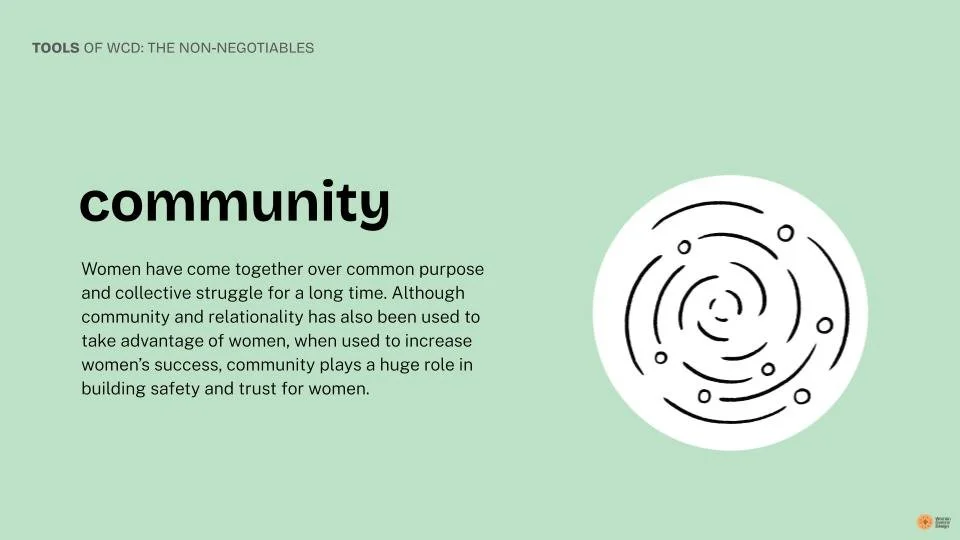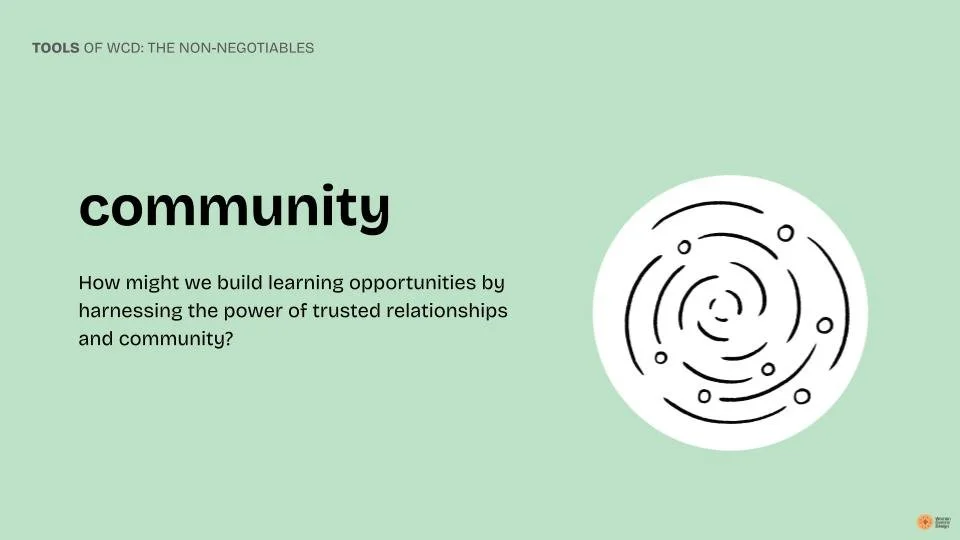The Non-Negotiables: Community
Community is a double edged sword: it is essential, critical – and extremely important to do it such that women are truly at the center of it. I know, that kinda sounds like, duh, isn't that true for everything. Yes, it is. So why did I include such a “no-brainer” in our toolkit. Here's why:
Community is so interconnected with trust & safety and given that these are already two other non-negotiables in our toolkit, I went back and forth on whether community deserves it's own spot. I went ahead and included it because it's a double-edged sword and because what's the harm in double checking we've covered our bases?
So, let's look at community in action.
My favourite example of community is self-help groups. These are small, community-based collectives—often of women—that come together to support each other socially and financially, pooling resources, sharing knowledge, and solving local challenges collectively. A recent story from Bihar shares how these groups are not only uplifting individual women but strengthening entire communities by training women as livestock caregivers, boosting incomes, and building collective confidence. By organizing together, these groups challenge gender barriers in agriculture, improve access to knowledge and resources, and foster solidarity and support among women.
The cool thing about self-help groups is truly in the name – there isn't a teacher-learner or savior-victim dynamic. It's designed to bridge gaps for women experiencing exacerbated inequities as it is able to collect and exhibit the social proof women need to feel safe to engage. The community & women are at the center of it.
Putting into practice
Build learning opportunities by harnessing the power of trusted relationships and community. Here’s how many practitioners have truly designed it with and for women:
Creating learning-by-doing experiences: Co-founder of SALT, Chaitra Chidanand realised the importance of learning-by doing experiences after observing one self-help group create a co-led ledgering system, an oversight mechanism that would eliminate chances of mischief through collusion & thus inspire trust. They baked this into their product to build women’s trust in themselves as they learned how to invest their savings.
Reducing competition: Founder of The Fem League, Yomi Abiola chose to actively reduce competition to build safety in her community. She did that by choosing to create their own platform and actively designing the moderation to practice no comparison culture. She did that because she observed that women need “a break from the comparison culture we are constantly in. Within the community, we don’t speak in terms of comparison to men either – because anything being created “in comparison to,” lacks integrity and free vision.”
Turning stigmatised ideas into practice and rituals: During her time at SheEO (now Coralus), Tania Cheng spoke about how turning a stigma into practice & ritual built a strong sense of community in their cohort. Upon realising that women entrepreneurs struggle asking for help, one of their regular rituals became to actively ask for help in their gatherings. This also helped to live up to their values: “when you ask for help and receive that support, you feel a sense of abundance and when you can offer support, that’s you being radically generous. It also creates a circle of gratitude and giving which is healing and transformative.”
Resources to learn more:
Interested in having us host a workshop or training for your team? Learn more here and contact us.


